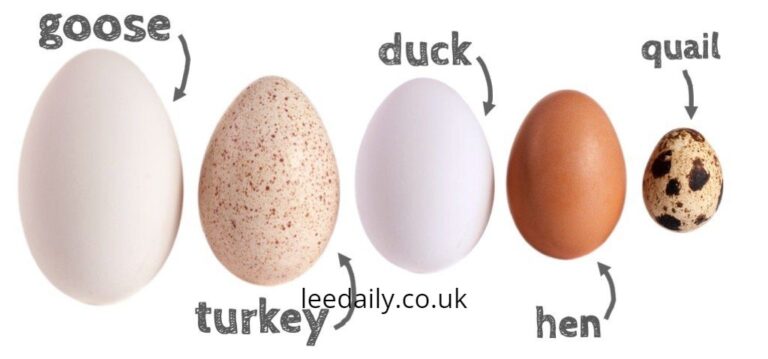When it comes to gourmet cooking and specialty baking, both duck eggs and goose eggs have carved out their niches due to their unique qualities. However, these eggs are not just different in size and taste but also in price. In this article, we’ll explore which of the two is more expensive and why.1. Size and YieldDuck Eggs: Duck eggs are slightly larger than chicken eggs and have a richer flavor. They have a thicker shell, which makes them more durable and gives them a longer shelf life. One duck egg is roughly equivalent to one and a half chicken eggs in terms of volume.Goose Eggs: Goose eggs are much larger than duck eggs, often three times the size of a large chicken egg. They have a thick, almost porcelain-like shell and a richer, denser yolk. Due to their size, a single goose egg can often replace two to three duck eggs in recipes.2. Rarity and ProductionDuck Eggs: Ducks generally lay eggs more consistently than geese, and they tend to be available year-round, although production can slow in the winter. Duck egg production is more common, particularly in regions where ducks are raised for both meat and eggs.Goose Eggs: Geese are seasonal layers, usually laying eggs only in the spring and early summer. A single goose might lay around 20-40 eggs per year, making them much rarer than duck eggs. The limited availability naturally drives up the cost of goose eggs.3. Nutritional ValueDuck Eggs: Duck eggs are rich in protein, omega-3 fatty acids, and vitamin D. They have a higher fat content than chicken eggs, making them ideal for baking, where their richness adds a luxurious texture to baked goods.Goose Eggs: Goose eggs are even richer in nutrients, containing more protein and fat per egg compared to duck eggs. The large yolk is especially prized in gourmet cooking for its creamy texture and rich flavor.4. Culinary UsesDuck Eggs: Due to their size and flavor, duck eggs are popular in baking, where they contribute to a richer and fluffier end product. They’re also commonly used in Asian cuisines and for making specialty items like salted duck eggs.Goose Eggs: Goose eggs are a delicacy in many cultures and are often reserved for special occasions or gourmet dishes. Their large size makes them ideal for hearty omelets or dishes where the egg is the star ingredient.5. Market PriceDuck Eggs: Depending on your location, duck eggs generally cost more than chicken eggs but are still relatively affordable. Prices can vary based on whether they are organic, free-range, or from a specialty breed.Goose Eggs: Goose eggs are significantly more expensive than both duck and chicken eggs. The rarity of the eggs, the seasonal nature of their availability, and their size all contribute to their higher price. In many markets, a single goose egg can cost as much as a dozen or more duck eggs.ConclusionWhen comparing the two, goose eggs are generally more expensive than duck eggs. The higher price is due to their rarity, seasonal availability, larger size, and the unique culinary uses that make them a prized ingredient in gourmet cooking. While duck eggs are more readily available and less costly, both types of eggs offer distinct flavors and nutritional benefits that can elevate a wide range of dishes. Whether you choose duck or goose eggs, you’re in for a culinary treat.
